In the often overlooked landscapes of rural areas, the challenge of menstrual hygiene management persists as a poignant reminder of the unmet needs of women and adolescent girls. The intersection of cultural, economic, and infrastructural hurdles creates an intricate web that hinders access to proper menstrual care, impacting not just physical health but the overall well-being of these women. It is within this context that Cairn Oil & Gas has introduced a holistic solution in the form of 'Project Harit Dhara'.
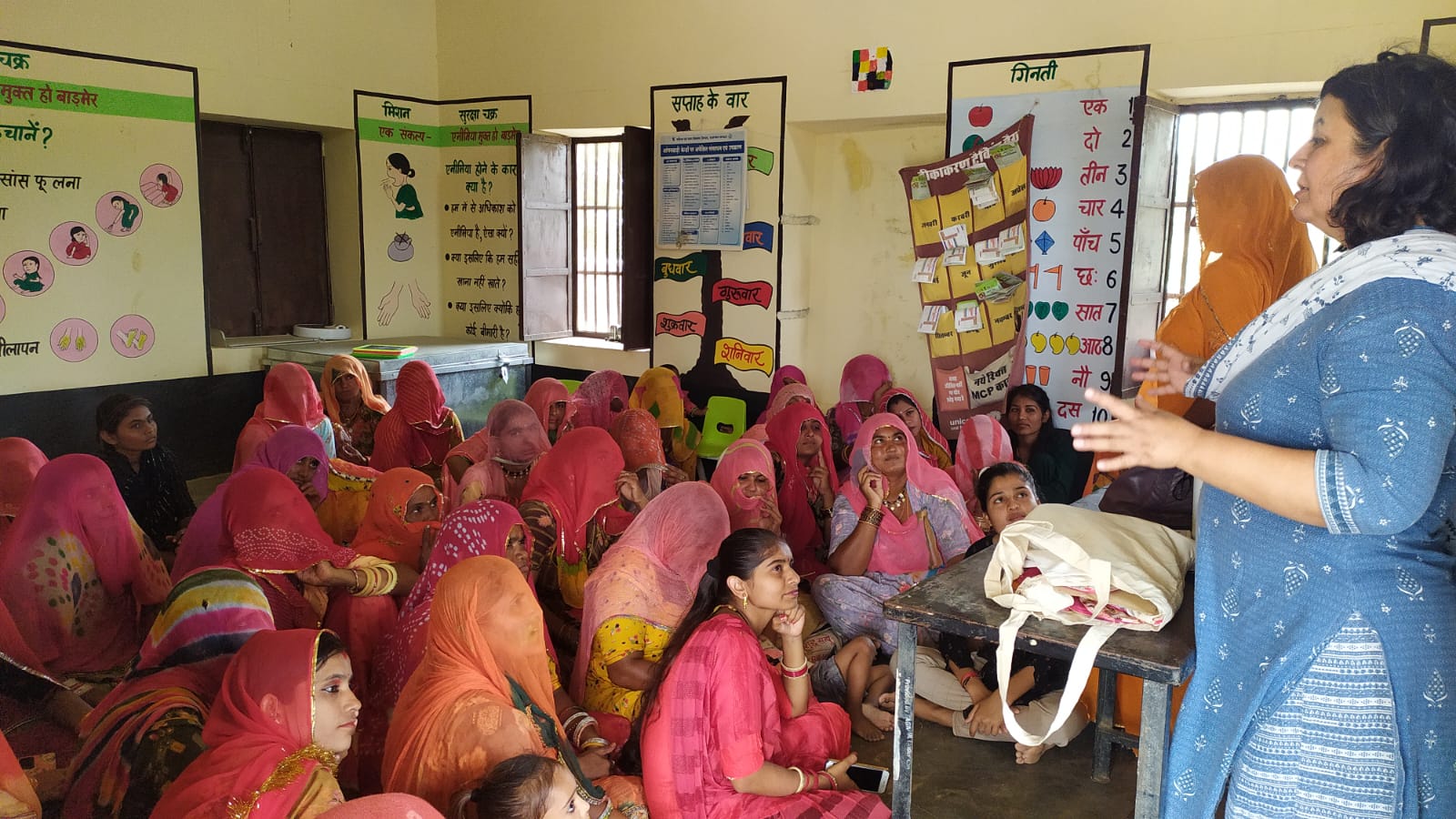 This pioneering initiative transcends the conventional boundaries of menstrual hygiene management in rural settings, representing a strategic intervention aimed at uplifting women communities in rural Barmer, Rajasthan. Aligned with Cairn's broader Environmental, Social, and Governance (ESG) vision to uplift 20 million women and children, encompassing investments in education, nutrition, healthcare, and overall welfare, 'Project Harit Dhara' extends beyond traditional approaches and works in tandem with UNSDGs. Besides encouraging the adoption of eco-friendly solutions and reducing sanitary waste, the project implements a unique livelihood model. Women and adolescent girls form Self-Help Groups (SHGs) engage in income-generating activities, particularly cloth pad production. With a targeted impact on 5,000 women, the initiative emphasizes Cairn's commitment to meaningful change.
This pioneering initiative transcends the conventional boundaries of menstrual hygiene management in rural settings, representing a strategic intervention aimed at uplifting women communities in rural Barmer, Rajasthan. Aligned with Cairn's broader Environmental, Social, and Governance (ESG) vision to uplift 20 million women and children, encompassing investments in education, nutrition, healthcare, and overall welfare, 'Project Harit Dhara' extends beyond traditional approaches and works in tandem with UNSDGs. Besides encouraging the adoption of eco-friendly solutions and reducing sanitary waste, the project implements a unique livelihood model. Women and adolescent girls form Self-Help Groups (SHGs) engage in income-generating activities, particularly cloth pad production. With a targeted impact on 5,000 women, the initiative emphasizes Cairn's commitment to meaningful change.
In an exclusive interview with TheCSRUniverse, Ms.Harmeet Sehra, Head CSR, Cairn Oil & Gas, emphasizes the company’s strategic vision for the initiative, delving into its broader goals and pivotal role in transforming menstrual hygiene management in rural communities. Furthermore, the testimonials from beneficiaries Meena, Kareena, and Geeta amplify her narrative, providing first hand perspectives on the substantial benefits and transformative experiences catalysed by the innovative initiative.
For further insights, scroll down to read the full interview.
Q&A
Q. Can you elaborate on how 'Project Harit Dhara' aligns with Cairn's Environmental, Social, and Governance (ESG) goals and contributes to your vision of empowering women?
A. Project Harit Dhara, Cairn's sustainable menstrual hygiene management initiative, is making significant strides in Barmer, Rajasthan, in line with our ESG vision to uplift 20 million women and children through investments in education, nutrition, healthcare, and overall welfare.
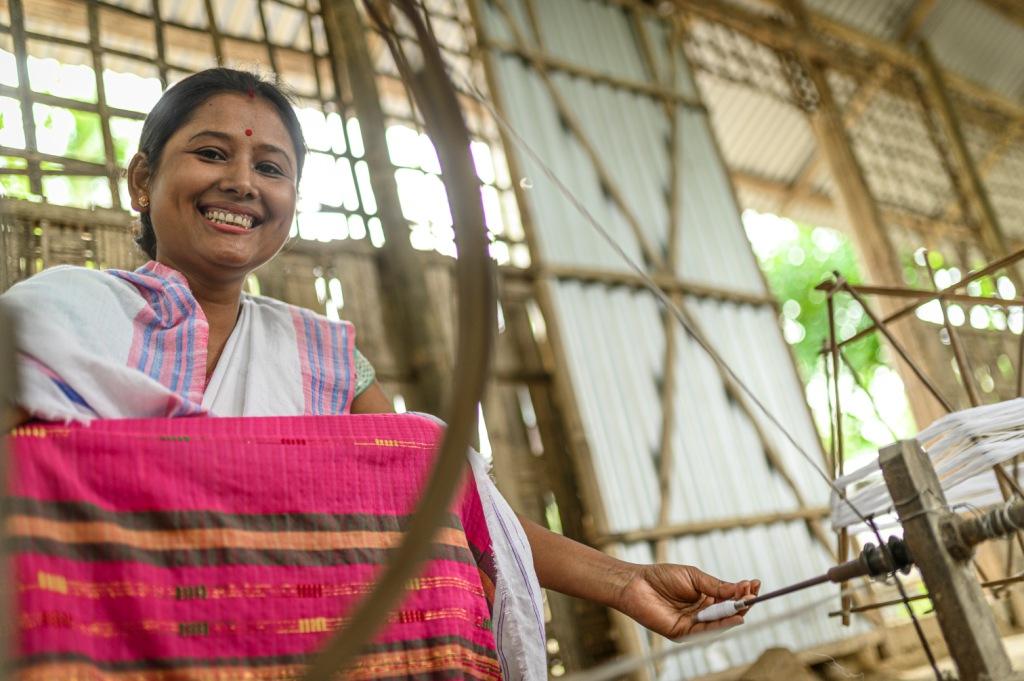 In the rural pockets of Barmer, the challenges of menstruation remain significantly prevalent for women owing to a combination of cultural, economic and infrastructural hurdles. With Project Dhara, we aim to provide a sustainable, affordable and acceptable alternative to sanitary napkins by introducing free-of-cost menstrual cups for women.
In the rural pockets of Barmer, the challenges of menstruation remain significantly prevalent for women owing to a combination of cultural, economic and infrastructural hurdles. With Project Dhara, we aim to provide a sustainable, affordable and acceptable alternative to sanitary napkins by introducing free-of-cost menstrual cups for women.
Talking about the project’s alignment, from an environmental standpoint, it provides a sustainable alternative by eliminating sanitary waste and addressing environmental pollution. In terms of economic benefit, a decade’s investment in menstrual cups is equivalent to just a month’s expense on sanitary napkins. On the social front, it significantly enhances the health and well-being of women, particularly vital in areas involving routine physical work. A robust governance framework ensures the project's viability and suitability for local communities.
Cairn's CSR commitment goes beyond corporate responsibility; it's about creating a meaningful and enduring impact in the lives of those we serve.
Q. Your involvement with Self-Help Groups (SHGs) in cloth pad production is remarkable. What significant socioeconomic changes have you observed among the women and adolescent girls participating in the project? Also, what was the motivation behind engaging local women communities in this initiative?
A.Our collaboration with Self-Help Groups (SHGs) for cloth sanitary napkin production, is yielding a significant socioeconomic shift among women and adolescent girls by providing them with livelihood opportunities and empowering them. In Rajasthan, we are training 30 women from SHGs to empower them economically to produce sanitary napkins for the younger girls. This not only acts as a catalyst for our broader project but also provides groups with opportunities to diversify their sources of income. Our motivation for engaging local women communities in this initiative is deeply rooted in our commitment to making a tangible difference in their lives.
Q. The project focuses on encouraging reusable and eco-friendly menstrual hygiene solutions. How do you intend to raise awareness and promote the adoption of these solutions among women in the community?
A.We prioritize community-oriented initiatives by understanding the challenges of social stigma from the perspective of beneficiaries. Our extensive research with beneficiaries sheds light on ongoing menstrual hygiene practices, revealing issues such as the disposal of used sanitary napkins, reliance on clothing materials, and cost limitations.
Our comprehensive analysis highlighted the significance of proper sanitary waste disposal and the transformative potential of menstrual cups. To promote menstrual cup awareness and acceptance, we followed a three-step process: first, we tried grasping the challenges, then we fostered a human connection through consistent engagement via platforms like WhatsApp groups, and ultimately, we reinforced awareness through relatable narratives that resonate with the community.
Q. Based on your experience, what are some of the common challenges faced by women in rural communities when it comes to managing their menstrual hygiene?
A.Women in rural communities face several challenges such as walking 4 to 5 kilometers daily for work or fetching water. Along these journeys, restrooms are sparse. This predicament eludes women's access to sanitary napkins, ultimately, resulting in poor menstrual hygiene and related health concerns.
The combination of physical challenges and the lack of hygiene facilities places considerable mental stress on women. Beyond the physical aspect, our overarching goal has been to address their personal hygiene concerns while simultaneously promoting their mental well-being. This holistic approach forms a pivotal part of our mission in Barmer. Some of the testimonials of the beneficiaries are as follows:
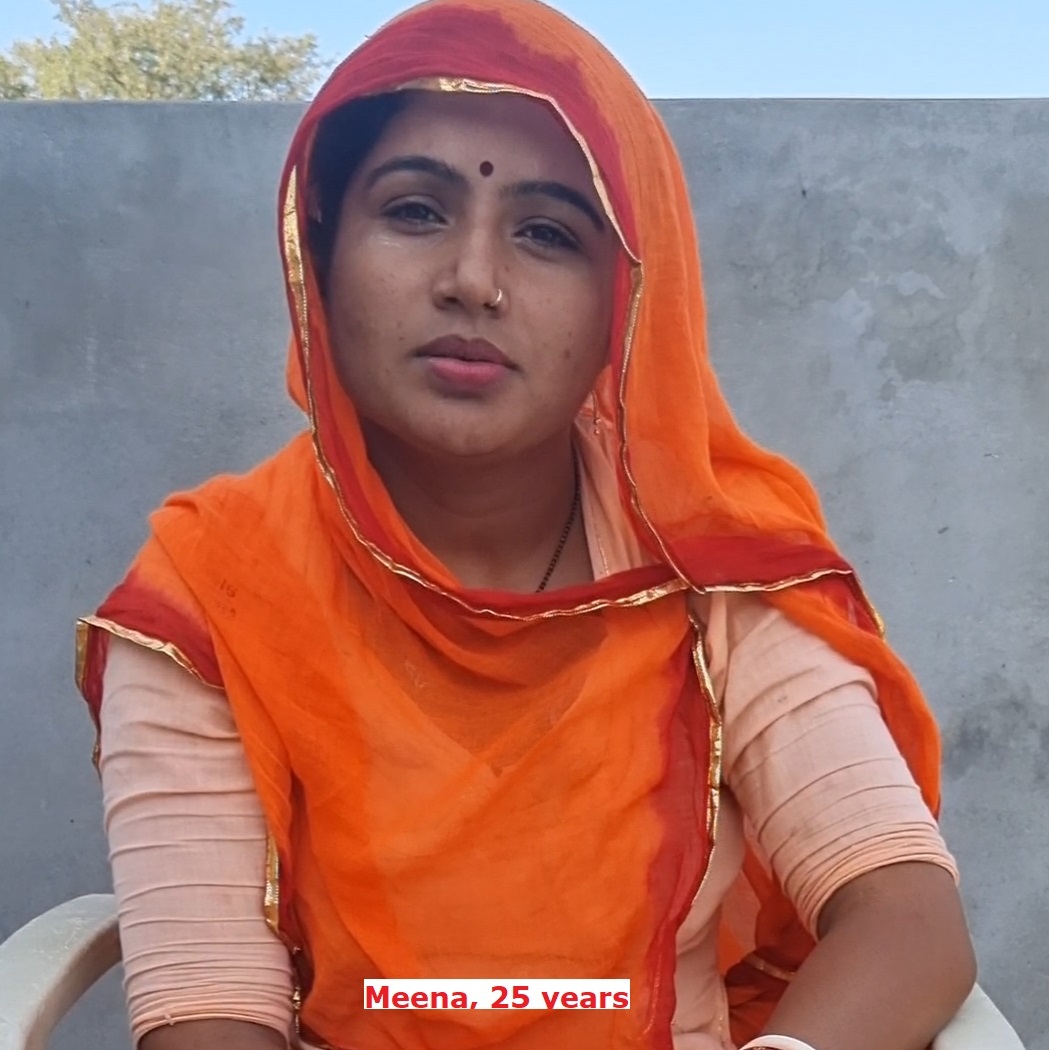 Meena, a 25-year-old beneficiary of Project Harit Dhara, shared her transformative experience with the initiative. She explained that using traditional pads, especially during heavy flow days, had been challenging for her. Walking 4-5 kms daily for household and farm work became difficult with sanitary pads. However, since switching to the menstrual cup provided by Project Harit Dhara, Meena reported no issues with walking, no leakage, and no fear of stains. The menstrual cup has given her the freedom to move without experiencing sleepless nights or discomfort, eliminating posture restrictions.
Meena, a 25-year-old beneficiary of Project Harit Dhara, shared her transformative experience with the initiative. She explained that using traditional pads, especially during heavy flow days, had been challenging for her. Walking 4-5 kms daily for household and farm work became difficult with sanitary pads. However, since switching to the menstrual cup provided by Project Harit Dhara, Meena reported no issues with walking, no leakage, and no fear of stains. The menstrual cup has given her the freedom to move without experiencing sleepless nights or discomfort, eliminating posture restrictions.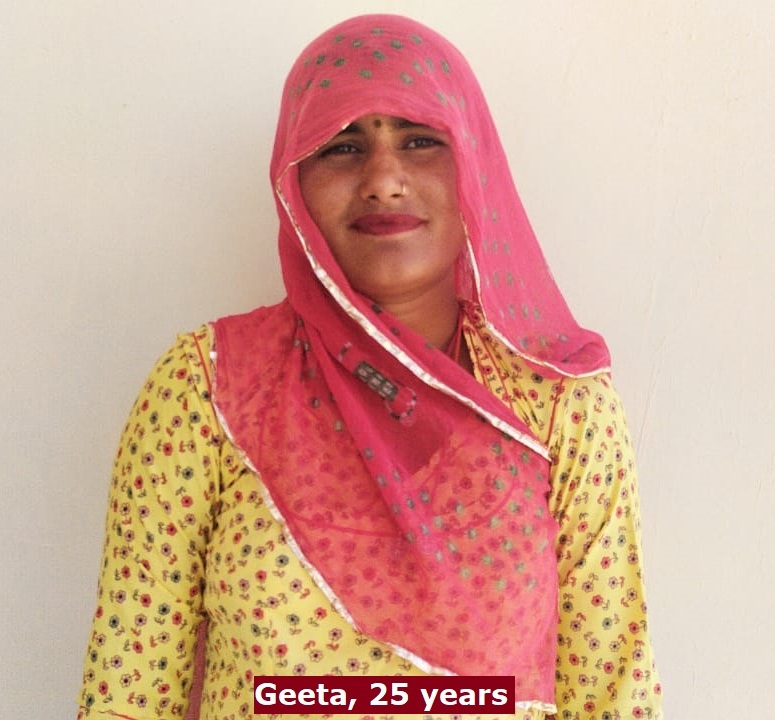
Geeta, a 25-year-old participant, recounted her stress-free experience. Learning about the menstrual cup in a community meeting organized by Cairn Vedanta, she now uses the cup and reports a positive response from her body. Geeta highlighted the cups' contribution to making farm work during periods much more comfortable. Feeling fortunate to have the cup before the harvesting season, she emphasized its ease of use and safety for storage.
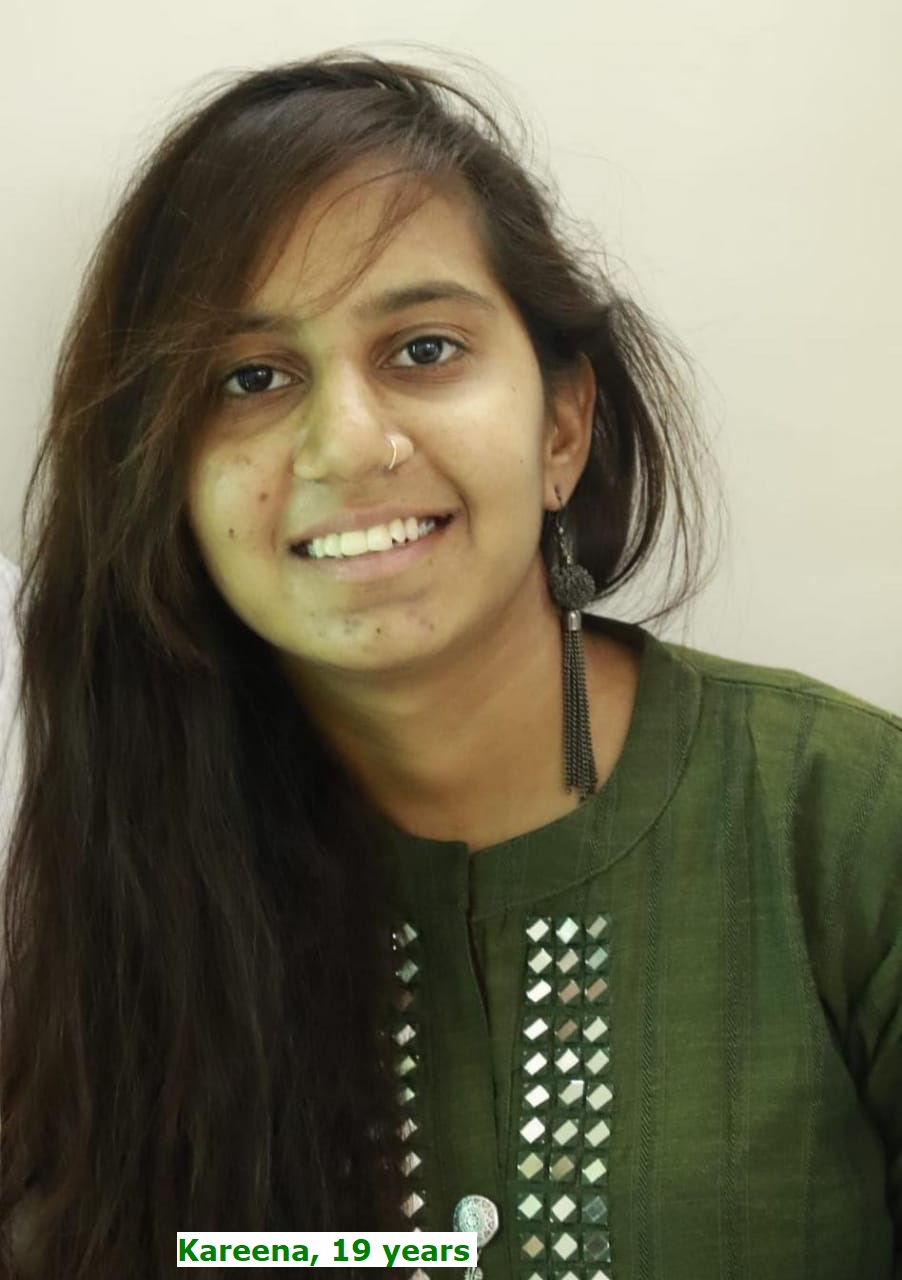 Kareena, a 19-year-old beneficiary, expressed her positive experience with Project Harit Dhara. She shared that her mother learned about the initiative, which introduced her to environmentally friendly cloth pads for menstrual hygiene. According to Kareena, the cloth pads were light, comfortable, and well-fitted. Swiftly transitioning from sanitary pads to cloth pads, she found them easy to use, with no shame in drying, good absorbency, and emphasized their eco-friendliness. She now recommends these cloth pads to her friends.
Kareena, a 19-year-old beneficiary, expressed her positive experience with Project Harit Dhara. She shared that her mother learned about the initiative, which introduced her to environmentally friendly cloth pads for menstrual hygiene. According to Kareena, the cloth pads were light, comfortable, and well-fitted. Swiftly transitioning from sanitary pads to cloth pads, she found them easy to use, with no shame in drying, good absorbency, and emphasized their eco-friendliness. She now recommends these cloth pads to her friends.
Q. Each testimonial shared by you, highlights positive experiences with alternative menstrual products. How do you ensure that these alternative solutions are both affordable and accessible to women in rural areas?
A. Our menstrual cups are free of cost for our communities, which ensures no economic burden on them to try the product first hand. Further, we've also been distributing them free of charge to promote widespread adoption. To ensure acceptability, we are actively encouraging women from the community to share their experiences with their peers, championing the product as a substantial stride towards improved menstrual hygiene.
It is also available at subsidised rates for larger community adoption.
Q. What role do medical professionals play in endorsing and supporting the project? How many do you have on board? How crucial is their involvement in ensuring the success of the project?
A.The involvement of medical professionals in a project of this nature plays a pivotal role in advancing menstrual hygiene practices and spreading awareness about health problems owing to the same.
We on-boarded over 18 gynaecologists to strengthen awareness and increase acceptance of the menstrual cups within our communities. It is heartening to see that the women have regularly been meeting these medical professionals and imbibing their counsel.
Q. Could you share insights into the specific goals and outcomes expected as you aim to impact 5,000 women within the community with this project? What is the current scale and reach of this project?
A. Our project follows a structured four-step approach: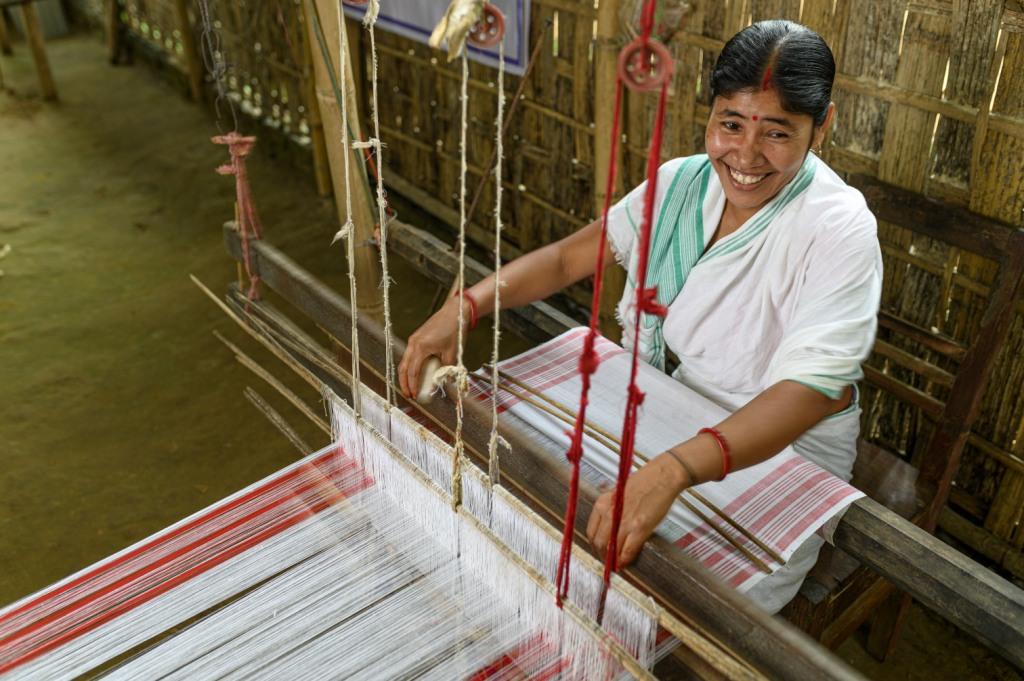
- We initiate the process by creating awareness about menstrual hygiene. We have formed health groups where open discussions about the concerns of our beneficiaries take place, fostering a platform for them to confidently share their issues and ask questions.
- We ensure accessibility by providing these products free of charge, allowing women to try them and experience the positive impact first hand.
- We take a proactive stance by imparting training in stitching and cloth sanitary napkin production.
- We are actively building a community of ambassadors who will play a pivotal role in expanding the project to more villages, thus, further strengthening menstrual hygiene practices across the state.
We have already reached out to over 1,785 women, and plan to extend this to cover more rural women in line with our commitment to this cause.
Q. One of the goals of the project is to reduce overall sanitary waste generation. Could you elaborate on the strategies and practices used to reduce waste, thus contributing to a more sustainable environment?
A. Our project caters to the environmental issue while reaching women who lack access to proper menstrual hygiene, by introducing an eco-friendly and cost-effective solution that promotes their well-being. Each menstrual cup lasts a decade as compared to the monthly number of units and costs of sanitary napkins, thus, significantly reducing sanitary waste in landfills and providing a sustainable alternative.
All our projects are designed to meet the SDGs. Project Harit Dhara directly aligns with SDGs - No. 3 - good health and well-being, No. 5 - gender equality by empowering women, and No. 8 - decent work and economic growth. Echoing these vital global goals, the initiative encapsulates sustainability and progress.
Q. What are some of the notable achievements and transformative impacts of 'Project Harit Dhara' since its initiation, particularly in terms of community engagement and sustainable menstrual hygiene practices?
A.With a target of reaching over 5,000 women, we have already engaged 1,785 women and adolescent girls, empowering them to overcome the challenges of menstruation.
With our ongoing community engagement, we have been able to reach more than 2,000 women, out of which almost 1,800 have started using the product. We ensure that we provide robust communication support to address any concerns and underscore the cost-effectiveness of the product in promoting menstrual hygiene.
Q. Could you share information about the project's key partners and how they have supported the initiative's objectives? Additionally, how have local administration helped you expedite your efforts?
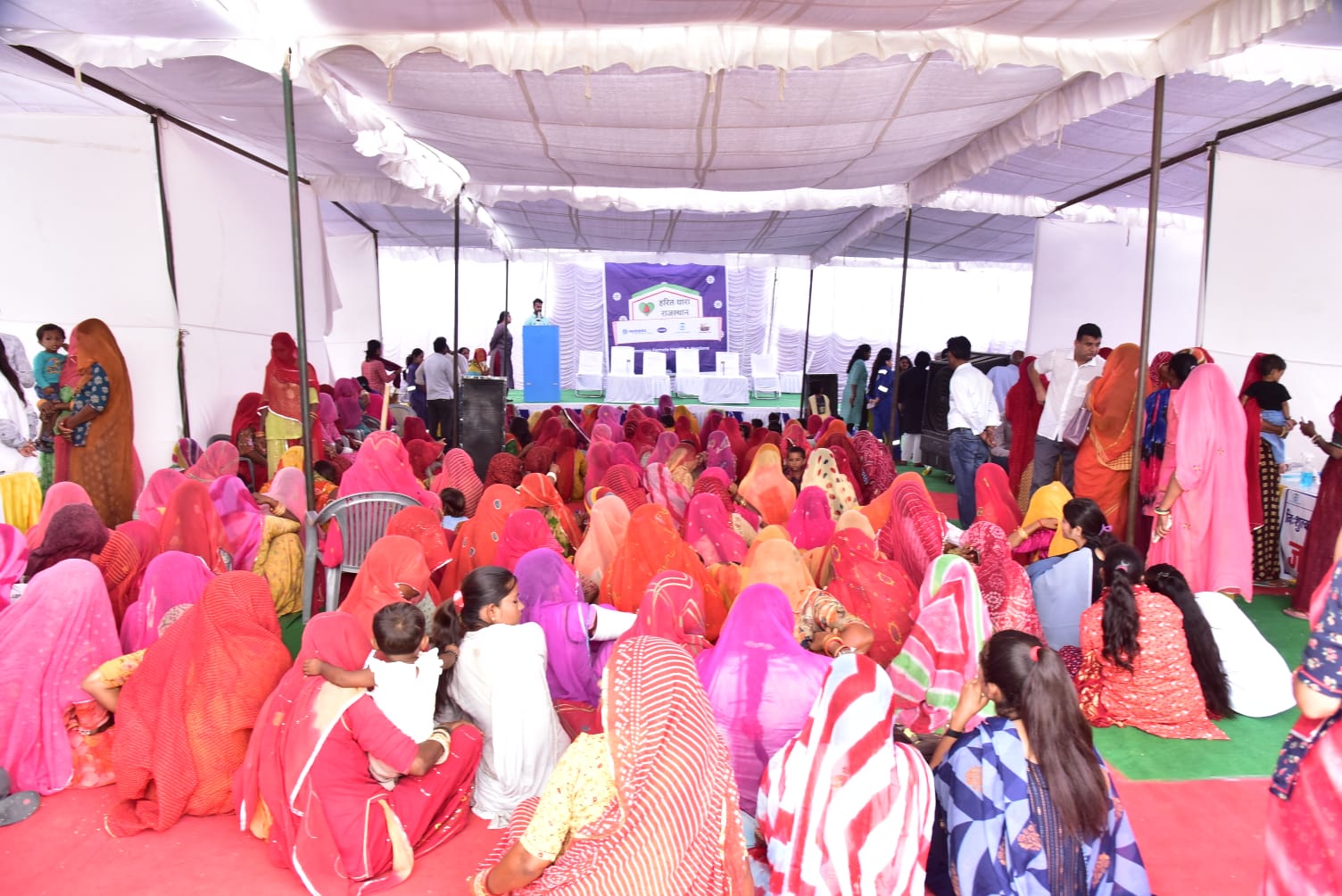 A. This project is a part of Vedanta’s ESG Spark initiative – a strategic accelerator and ventures initiative fostering startups in the space of technology, product development, commercial partnerships, etc. The product was created by Stonesoup Agency, and it was promoted locally by our NGO partner, Dhara Sansthan. We have a team of medical professionals and other experts creating awareness about the project through community interventions. We engaged with government officials starting with the District Collector, and distributed samples to the women in their families. We also work with the health department, including the Principal Medical Officer and other officials to underline the value-add that the product brings in enhancing the overall well-being of women in villages.
A. This project is a part of Vedanta’s ESG Spark initiative – a strategic accelerator and ventures initiative fostering startups in the space of technology, product development, commercial partnerships, etc. The product was created by Stonesoup Agency, and it was promoted locally by our NGO partner, Dhara Sansthan. We have a team of medical professionals and other experts creating awareness about the project through community interventions. We engaged with government officials starting with the District Collector, and distributed samples to the women in their families. We also work with the health department, including the Principal Medical Officer and other officials to underline the value-add that the product brings in enhancing the overall well-being of women in villages.
Q. As 'Project Harit Dhara' progresses, do you foresee the potential for expanding its reach to more communities or regions? What are the next steps?
A.Yes, we are looking at expanding its reach across the state; our goal is to make villages sanitary napkins waste-free and encourage more women to adopt this solution for better menstrual health. Our primary responsibility is to have wide acceptability within the village and to ensure that, we plan to collaborate with existing government programs. We are showcasing Project Harit Dhara as a shining example of how our society can make a difference in the lives of young girls and women.




 This pioneering initiative transcends the conventional boundaries of menstrual hygiene management in rural settings, representing a strategic intervention aimed at uplifting women communities in rural Barmer, Rajasthan. Aligned with Cairn's broader Environmental, Social, and Governance (ESG) vision to uplift 20 million women and children, encompassing investments in education, nutrition, healthcare, and overall welfare, 'Project Harit Dhara' extends beyond traditional approaches and works in tandem with UNSDGs. Besides encouraging the adoption of eco-friendly solutions and reducing sanitary waste, the project implements a unique livelihood model. Women and adolescent girls form Self-Help Groups (SHGs) engage in income-generating activities, particularly cloth pad production. With a targeted impact on 5,000 women, the initiative emphasizes Cairn's commitment to meaningful change.
This pioneering initiative transcends the conventional boundaries of menstrual hygiene management in rural settings, representing a strategic intervention aimed at uplifting women communities in rural Barmer, Rajasthan. Aligned with Cairn's broader Environmental, Social, and Governance (ESG) vision to uplift 20 million women and children, encompassing investments in education, nutrition, healthcare, and overall welfare, 'Project Harit Dhara' extends beyond traditional approaches and works in tandem with UNSDGs. Besides encouraging the adoption of eco-friendly solutions and reducing sanitary waste, the project implements a unique livelihood model. Women and adolescent girls form Self-Help Groups (SHGs) engage in income-generating activities, particularly cloth pad production. With a targeted impact on 5,000 women, the initiative emphasizes Cairn's commitment to meaningful change. In the rural pockets of Barmer, the challenges of menstruation remain significantly prevalent for women owing to a combination of cultural, economic and infrastructural hurdles. With Project Dhara, we aim to provide a sustainable, affordable and acceptable alternative to sanitary napkins by introducing free-of-cost menstrual cups for women.
In the rural pockets of Barmer, the challenges of menstruation remain significantly prevalent for women owing to a combination of cultural, economic and infrastructural hurdles. With Project Dhara, we aim to provide a sustainable, affordable and acceptable alternative to sanitary napkins by introducing free-of-cost menstrual cups for women. Meena, a 25-year-old beneficiary of Project Harit Dhara, shared her transformative experience with the initiative. She explained that using traditional pads, especially during heavy flow days, had been challenging for her. Walking 4-5 kms daily for household and farm work became difficult with sanitary pads. However, since switching to the menstrual cup provided by Project Harit Dhara, Meena reported no issues with walking, no leakage, and no fear of stains. The menstrual cup has given her the freedom to move without experiencing sleepless nights or discomfort, eliminating posture restrictions.
Meena, a 25-year-old beneficiary of Project Harit Dhara, shared her transformative experience with the initiative. She explained that using traditional pads, especially during heavy flow days, had been challenging for her. Walking 4-5 kms daily for household and farm work became difficult with sanitary pads. However, since switching to the menstrual cup provided by Project Harit Dhara, Meena reported no issues with walking, no leakage, and no fear of stains. The menstrual cup has given her the freedom to move without experiencing sleepless nights or discomfort, eliminating posture restrictions.
 Kareena, a 19-year-old beneficiary, expressed her positive experience with Project Harit Dhara. She shared that her mother learned about the initiative, which introduced her to environmentally friendly cloth pads for menstrual hygiene. According to Kareena, the cloth pads were light, comfortable, and well-fitted. Swiftly transitioning from sanitary pads to cloth pads, she found them easy to use, with no shame in drying, good absorbency, and emphasized their eco-friendliness. She now recommends these cloth pads to her friends.
Kareena, a 19-year-old beneficiary, expressed her positive experience with Project Harit Dhara. She shared that her mother learned about the initiative, which introduced her to environmentally friendly cloth pads for menstrual hygiene. According to Kareena, the cloth pads were light, comfortable, and well-fitted. Swiftly transitioning from sanitary pads to cloth pads, she found them easy to use, with no shame in drying, good absorbency, and emphasized their eco-friendliness. She now recommends these cloth pads to her friends.
 A. This project is a part of Vedanta’s ESG Spark initiative – a strategic accelerator and ventures initiative fostering startups in the space of technology, product development, commercial partnerships, etc. The product was created by Stonesoup Agency, and it was promoted locally by our NGO partner, Dhara Sansthan. We have a team of medical professionals and other experts creating awareness about the project through community interventions. We engaged with government officials starting with the District Collector, and distributed samples to the women in their families. We also work with the health department, including the Principal Medical Officer and other officials to underline the value-add that the product brings in enhancing the overall well-being of women in villages.
A. This project is a part of Vedanta’s ESG Spark initiative – a strategic accelerator and ventures initiative fostering startups in the space of technology, product development, commercial partnerships, etc. The product was created by Stonesoup Agency, and it was promoted locally by our NGO partner, Dhara Sansthan. We have a team of medical professionals and other experts creating awareness about the project through community interventions. We engaged with government officials starting with the District Collector, and distributed samples to the women in their families. We also work with the health department, including the Principal Medical Officer and other officials to underline the value-add that the product brings in enhancing the overall well-being of women in villages.












.jpg)



